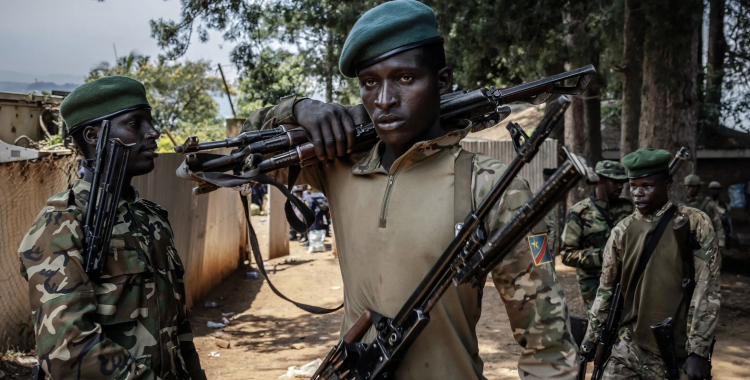“The Angolan Ministry of Foreign Affairs informs national and international public opinion that, for reasons and circumstances of force majeure, it was not possible to hold, this Tuesday, March 18, in Luanda, the scheduled meeting between the Government of the Democratic Republic of Congo and the March 23 Movement (M23)”, reads the statement released late in the afternoon.
The Government, which assumes the role of mediator in the search for a solution to the ongoing conflict in eastern DRCongo, assures that it “continues to make every effort to ensure that the aforementioned meeting takes place at an opportune time, reaffirming that dialogue is the only lasting solution for peace” in that region of neighboring DRCongo.
At the end of Monday, the M23 announced that it was canceling its participation in the meeting, the first to bring together rebels and Congolese authorities at the same table, justifying its absence in light of the positions of "international institutions", this after the European Union announced sanctions against a refinery based in Kigali and nine people linked to the recent rebel offensives in eastern DR Congo.
Even after this announcement, the Presidencies of Angola and the DR Congo, which have had a delegation in Luanda since Monday, reaffirmed the holding of the meeting, which ended up being cancelled on the same day.
The meeting would mark the beginning of direct negotiations for peace and was part of the “steps taken by Angolan mediation in the conflict affecting eastern DR Congo,” as announced by the Presidency.
João Lourenço, acting president of the African Union (AU) since last February, acted as a facilitator to promote peace and security in the region and reduce tensions between the DR Congo and Rwanda, a country accused of militarily supporting the M23 rebels.
Before announcing his absence, the armed group M23 had announced the sending of five delegates to Luanda to participate in the peace negotiations, declaring “deep gratitude” to João Lourenço “for his tireless efforts” to find a peaceful solution to the current conflict in the DRCongo.
The M23 has been advancing into democratic Congolese territory since January, when it took Goma, capital of North Kivu province.
In February, the M23, which is supported by Rwanda - according to the UN and countries such as the US, Germany and France - took control of Bukavu, the strategic capital of the neighboring province of South Kivu.
The rebels now control the capitals of these two provinces, which border Rwanda and are rich in minerals such as gold and coltan, essential for the technology industry and the manufacture of mobile phones.
João Lourenço reiterated last week his concern about terrorism and violent extremism, unconstitutional changes in democratically elected governments and the conflicts that prevail in Africa, especially in eastern DR Congo and Sudan.
“We have decided not to sit idly by and insist on seeking peaceful solutions, not allowing the ongoing balkanization plan to come to fruition, with the creation of a pariah state in eastern DR Congo, or even the attempt to reverse the power established in Kinshasa by military means,” he said while speaking in Addis Ababa, Ethiopia, during the handover ceremony of the new members of the AU commission.
Armed activity by the M23 - a group made up mainly of Tutsis victims of the 1994 Rwandan genocide - resumed in November 2021 with lightning attacks against the government army in North Kivu, advancing on several fronts and raising fears of a possible regional war.







